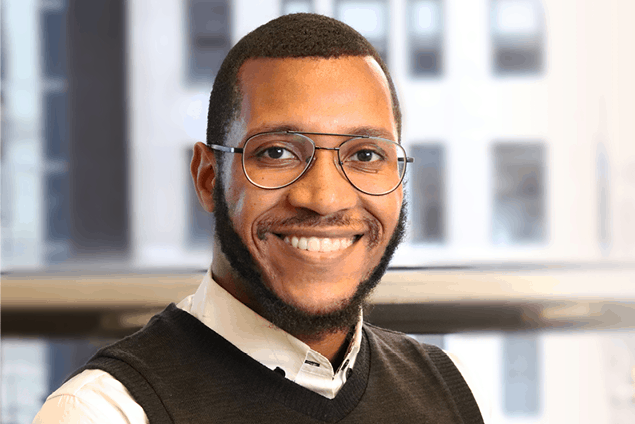Stories of Immigrants: Omar Kallon
Wednesday | June 3, 2020 | by Wilma Lee

The Stories of Immigrants Project began as a way for employees at World Education Services (WES) to become more involved with the company’s mission and learn more about the immigrants and refugees who we work to support every day. Over the course of a year, the project blossomed into something more meaningful than we could have ever imagined, touching the lives of hundreds who participated.
Below, read excerpts from our wonderful interview with Omar. Or, you can watch the video now!
WES: Tell us a little bit of your life before moving here. How did you decide to move to the United States?
Omar: I was born in Egypt, in Cairo, to be specific, to an Egyptian mother and a Sierra Leonean father. I think my childhood was very lively. [But] life was getting a little bit difficult in Egypt because my father was not a citizen, so he had very limited job opportunities. At the time, my father knew that there was war in Sierra Leone, which deemed him a refugee since he could not return back to the country.
[One day], all of a sudden, I was told, “Omar, you’re going to America in the next 3-4 weeks.” I was still in school, and my main priority was school, so I was thinking about the end-of-year examination in Egypt. So I was really very confused and scrambled. There was really no set plan.
[I only knew afterwards that my father], along with a bunch of other Sierra Leoneans who were his friends at the time, decided to apply for resettlement, since they cannot go back to Sierra Leone. And my family’s case was accepted. We went through the process, and we were given refugee status, and eventually we came to the United States back in 2001.
WES: How is your life in the United States? Did you face any challenges? If so, how did you overcome them?
Omar: I arrived at JFK Airport on May 9, 2001. We were living in an apartment with other people from Sierra Leone. And at the time, we did not know that we were going to live with other people, because in Egypt, we had our own apartment, three bedrooms, furnished, everything was OK. And all of a sudden, we were being crammed into an apartment with other people who did not speak our language, and we were not feeling comfortable, so that really shocked us.
The language definitely was a barrier. Although I had a very basic understanding of English, it is nothing close to really immersing yourself in the education system, where you are told to write full essays with references in MLA Style. I had no idea what that meant. I had no idea how to read the literature book that I was given. I was unable to speak to the teachers. I was unable to communicate to classmates. I was unable to make friends.
I came to the United States with a focus, that I needed to succeed here. And I needed to do whatever I can to do so. I had the appetite to learn. I had the desire, the passion, the determination to not only learn English, but also love education. But the minute I surpassed the language barrier, things all because easy and fell into place, as if you were putting [together] a jigsaw puzzle.
WES: Can you share any examples that highlight your experience of living in the United States?
Omar: In the American system, I really loved the freedom that I can ask any question. And everybody valued my time, and my questions. [Everyone] was really interested in knowing what I know, and wanted to make me grow what interests and desires I had in terms of education and goals later on in life.
WES: What do you want to say to other immigrants who are considering this journey? Do you have any advice for them?
Omar: I feel like the United States is the land of opportunity. If I was not given the opportunity, I would not have learned English, I would not have chased my graduate degree, or worked in the field that I want. So, I feel like in America, that “I” is amplified. You can do things that you like. You can find your own path.
[I would tell other newcomers or refugees that] having a plan of some sort really does go a long way: coming in knowing where you want to be, and then studying and researching what steps you want to take in order to reach your goal.
I think patience is a virtue, as they say. It’s really key. In the United States, you have to be patient in order to get what you want. Nothing comes fast and easy. And I feel that, with hard work and patience, you will get to where you need to be.
Learn more of Omar’s story by watching the video here. For more stories, as well as immigration news and advice, subscribe to the WES Advisor Newsletter.
Are you currently planning your own immigration journey?
